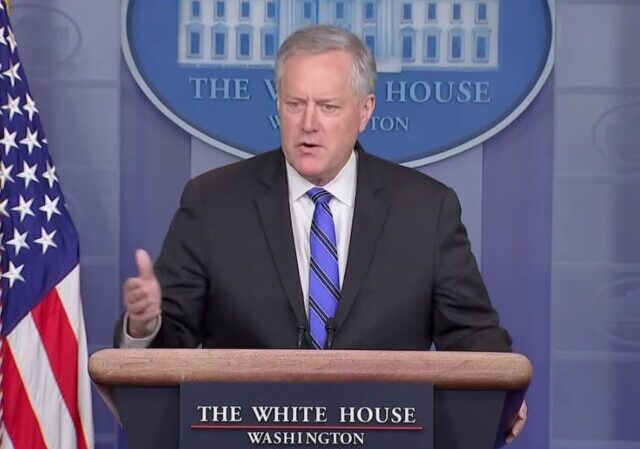Federal Judge Rejects Mark Meadows’ Motion To Remove Georgia Criminal Prosecution To Federal Court

We previously noted that Mark Meadows Files To Remove Georgia State Prosecution To Federal Court.
I thought it was a clear and easy winner. A federal judge disagrees, finding that the “heart” of the RICO charge against Meadows does not relate to his conduct as a federal officer, issuing an Order late today rejecting the motion:
As the foregoing analysis illustrates, the Court concludes that Meadows has not shown that the actions that triggered the State’s prosecution related to his federal office. The Constitution, federal statute and regulation of executive branch employees, and the purpose of Section 1442 support this conclusion. Meadows’s alleged association with post-election activities was not related to his role as White House Chief of Staff or his executive branch authority.
This is contrary to my understanding of the law on removal, and the judge carved out a novel approach.
Assuming jurisdiction over this criminal prosecution would frustrate the purpose of federal officer removal when the state charges allege—not state interference with constitutionally protected federal activities, but—federal interference with constitutionally protected state actions. This result cannot stand in the face of federalism, “a concept which retains vitality and importance in our modern constitutional scheme,” and the Constitution’s express delegation of election activities to States. United States v. Ballinger, 395 F.3d 1218, 1248 (11th Cir. 2005) (Birch, J., dissenting). Thus, the purposes of federal officer removal are served, rather than thwarted, by the Court’s conclusion that it has no jurisdiction over the removal of Meadows’s criminal prosecution.***The Court acknowledges that federal officer’s “relating to” requirement is “broad.” Caver, 845 F.3d at 1144. The Court also acknowledges that “[f]ederal courts credit the removing party’s theory of the case for purposes of determining if a federal officer both acted ‘under color of office’ and raised ‘a colorable federal defense.’” Heinze, 637 F. Supp. 3d at 1322 (quoting Acker, 527 U.S. at 432). The Court does not take lightly these standards in rendering its conclusion that federal officer removal is not supported here. Rather, the Court concludes that if it were to agree with Meadows’s arguments regarding removal, the Court would have to turn a blind eye to express constitutional power granted to the States to determine their election procedures, as well as federal statutory and regulatory limitations on political activities of executive branch officials. The Court would be ignoring the evidence Meadows himself submitted of his post-election related activities and the purpose of the federal officer removal statute. It would be legally and factually erroneous for the Court to do so.
I expect it to be reversed on appeal.
MORE TO FOLLOW
———–
CLICK HERE FOR FULL VERSION OF THIS STORY